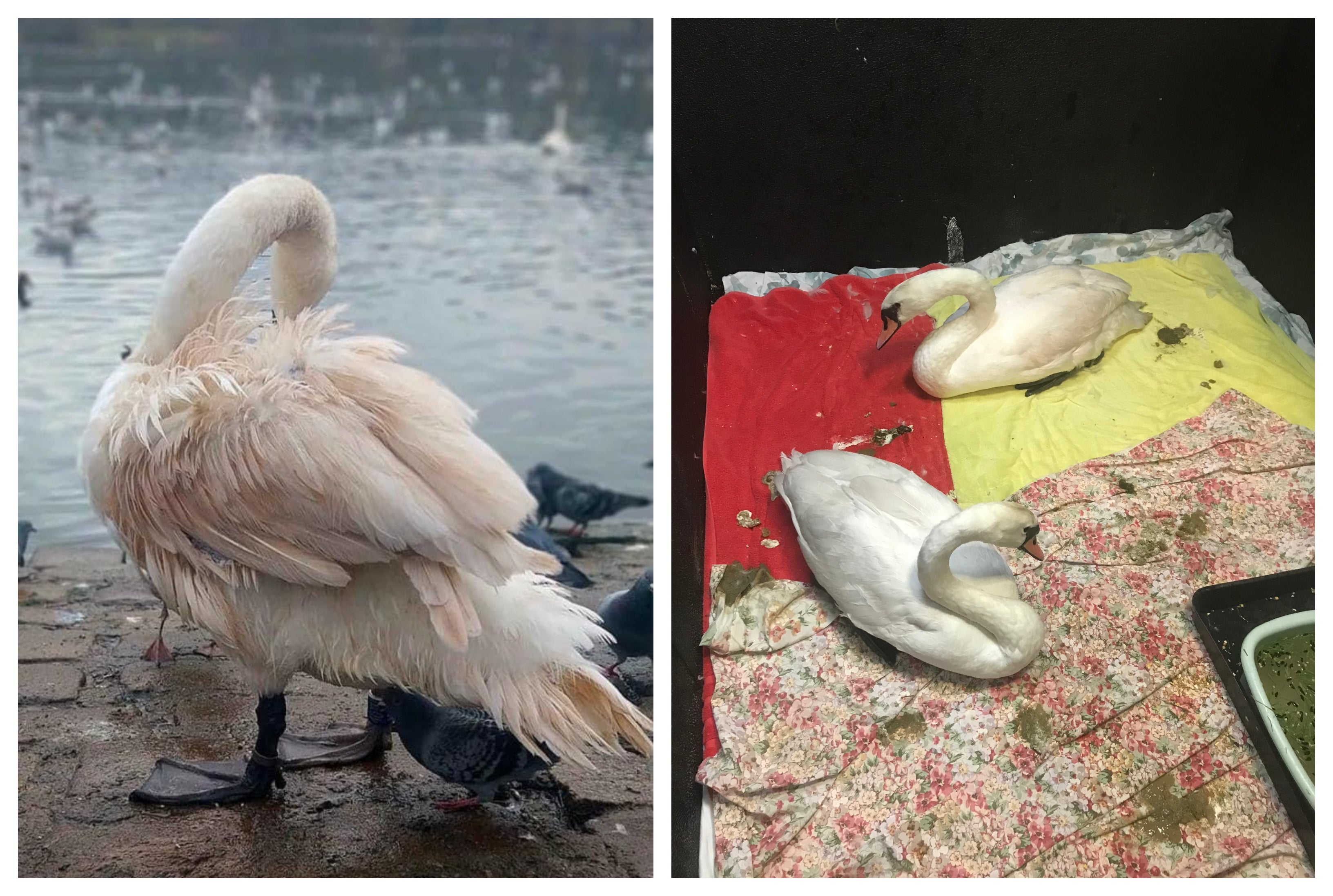RSPCA warns swans are turning pink because park visitors keep doing one thing
Two affected swans were cleaned up and released
Your support helps us to tell the story
From reproductive rights to climate change to Big Tech, The Independent is on the ground when the story is developing. Whether it's investigating the financials of Elon Musk's pro-Trump PAC or producing our latest documentary, 'The A Word', which shines a light on the American women fighting for reproductive rights, we know how important it is to parse out the facts from the messaging.
At such a critical moment in US history, we need reporters on the ground. Your donation allows us to keep sending journalists to speak to both sides of the story.
The Independent is trusted by Americans across the entire political spectrum. And unlike many other quality news outlets, we choose not to lock Americans out of our reporting and analysis with paywalls. We believe quality journalism should be available to everyone, paid for by those who can afford it.
Your support makes all the difference.Park visitors have been urged to stop feeding swans bread after several of the protected birds turned pink because they ate mouldy crumbs left in the water.
Visitors to Moses Gate Country Park in Bolton called the RSPCA after spotting the bevy of swans looking tickled pink.
The charity said the group of birds were suffering from “pink feather syndrome”, which can result in swans struggling to swim and fly.

The condition is caused by a fungus which occurs when bread starts to decay in water.
People are being urged to feed the protected birds cabbage, spinach and lettuce or bird seed instead of bread.
RSPCA animal rescue officer Stephen Wickham, who collected the swans, said: “We know how much people enjoy feeding swans, ducks and geese, however, it’s important to make sure they are given the right food.
“Unfortunately, bread fills them up without giving them the nutrients they need and it can affect their health.
“We’d encourage people to offer them finely chopped greens, such as cabbage, spinach and lettuce, as well as mixed corn, grain, wheat or bird seed.
“Any feeding should also be done in moderation and only as a supplement to their natural diet.”

Join our commenting forum
Join thought-provoking conversations, follow other Independent readers and see their replies
Comments